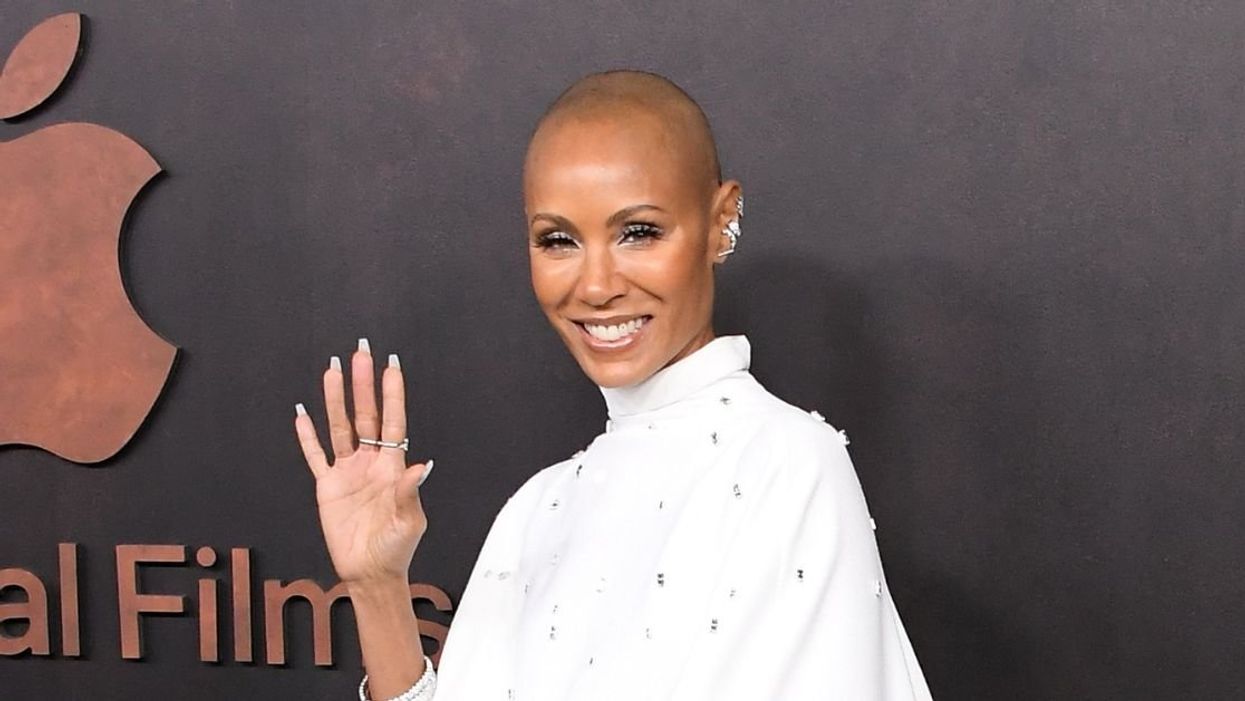Jada Pinkett Smith gave fans a positive update about her alopecia–an autoimmune disease that results in hair loss.
The Matrix Reloaded actress has been open about dealing with her condition that left her with bald circular patches on her head–a common symptom of the disorder.
She first brought it up in 2018 during her Facebook Watch show, Red Table Talk, which also features her mother, Adrienne Banfield Norris, and daughter, Willow Smith discussing three generations' worth of perspectives on a wide range of topics.
“I haven't talked about it. It's not easy to talk about. But I am gonna talk about it,” she said on an episode and revealed:
“I’ve been having issues with hair loss."
Smith, who is now 51, explained at the time that she first made the discovery while taking a shower and noticing she was losing "handfuls of hair."
“It was one of those times in my life where I was literally shaking with fear," she said.
"That’s why I cut my hair and continued to cut it.”
When medical tests didn't reveal conclusive evidence as to what was causing the sudden loss of hair, she suspected it might have been due to stress.
Smith got real with her Instagram followers in December 2021 and showed them her bald spots from the alopecia in a revealing video.
She wrote in the caption:
"Mama’s gonna have to take it down to the scalp so nobody thinks she got brain surgery or something😜"
"Me and this alopecia are going to be friends … period!😆"
Smith showed her followers the top of her head and pointed to the affected area.
"Now, at this point, I can only laugh," she said, owning the situation.
"Y'all know I've been struggling with alopecia and just all of a sudden one day, look at this line right here. Look at that."
"So it just showed up like that and this is going to be a little bit more difficult for me to hide."
"So I thought I'd just share it so y'all are not asking any questions."
Smith then told fans how she was going to own the bald patches and incorporate them into a new look.
"But you know mama's going to put some rhinestones in there. I'm going to make me a little crown."
"That's what mama's going to do."
Since then, things have started to improve.
On Monday, Smith was once again candid about her alopecia and offered a glimpse of hope with then and now photos of her hair regeneration.
"This here hair is act’n like it’s try’n a make a come back," she wrote in the Instagram caption.
"Still have some trouble spots but — we’ll see✨"
The first photo represented how her scalp appeared in the "past."

And the second showed the "present" with her hair starting to grow back.

Fans shared encouraging words.





Smith's alopecia was the subject of controversy as it resulted in the unfortunate slap heard around the world during the Academy Awards on March 27, 2022.
Smith's husband, Academy Award-winning actor Will Smith, smacked comedian Chris Rock across the face during the live-televised ceremony and in front of industry peers after Rock made a joke comparing his wife to Demi Moore's character with a shaved head in the 1997 movie G.I. Jane.
The comedian, who was an Oscar presenter at the time, reportedly claimed he had no idea about Smith's alopecia, even though she had been open about it to the public.
Following the scandal, Smith told the Guardian that she "learned a lot about detachment" and that she "learned a deeper beauty within myself, being able to let my hair go.”
She also explained how her alopecia diagnosis served as a "great teacher" for her.
Said Smith:
"It’s been a hard one, a scary one—because specifically as Black women, we identify so much of ourselves with our hair."
"And it was scary."
"I had to really dig deep and see the beauty of myself beyond my aesthetics.”
According to Medical News Today, alopecia affects roughly 6.8 million people in the United States and 147 million people worldwide.
The disease can affect anyone regardless of age, gender, or race, with most cases affecting those before reaching the age of 30.
Scientists believe the cause is genetic as it tends to run in families.
















 @FlavorFlav/X
@FlavorFlav/X @flavorflavofficial/Instagram
@flavorflavofficial/Instagram @flavorflavofficial/Instagram
@flavorflavofficial/Instagram